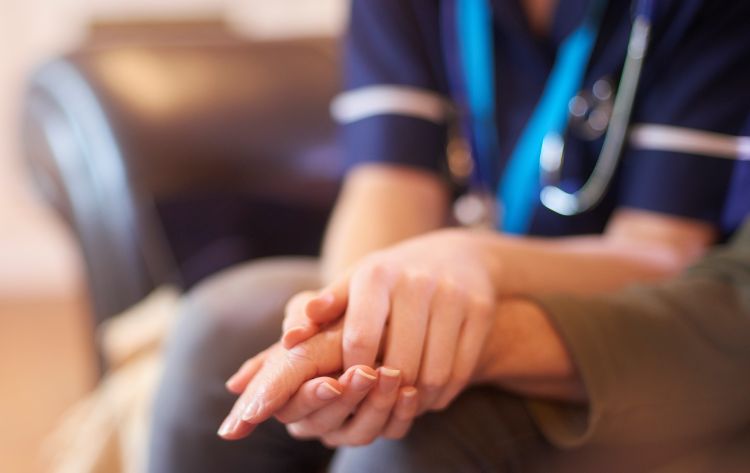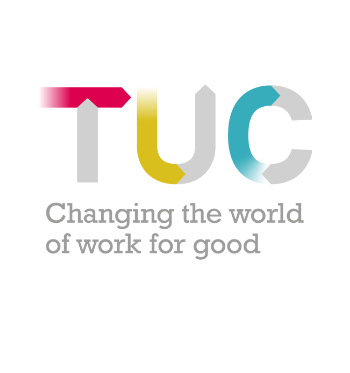LGBT+ workers in Wales and Covid-19

During this pandemic, support services that are vital may have been moved online, postponed or cancelled and the impact can be devastating. We’ve created a guide on some of the issues faced by LGBT+ people in Wales and what workplaces can do to make work better.
Issues facing LGBT+ workers in Wales
- Trans people report high levels of discrimination and stigma in healthcare settings. Many tell us that they have been regularly misgendered at hospital, particularly those who live visibly trans and those whose name and gender are not reflected accurately on medical papers.
- Toilets (where we should all be thoroughly washing our hands) are highly policed spaces for trans people. Handwashing in public or workspaces can put trans people at risk of harassment and violence.
- Trans people can experience transphobia from staff and other patients while staying in hospital.
- LGBT+ people, including trans and gender diverse people, have higher rates of HIV and cancer, and may have a compromised immune system.
- Practices common amongst Trans men such as chest binding can exacerbate respiratory conditions. But this may not be widely known in the community or outside of it.
- The impact of Covid-19 on mental health services for LGBT+ people is a concern. Many of these services are run voluntarily by small charities and community groups who struggle to survive even when there isn’t a global health pandemic. Many routine mental health appointments and face to face appointments have been cancelled.
- LGBT+ people can experience domestic abuse from a partner, but also from people they are living with. Living in quarantine with homophobic family members or flatmates can increase the risk of hate crimes and domestic abuse.
Your rights as a LGBT+ worker
Section 44 of the Employment Rights Act 1996 provides workers with the right to withdraw from and refuse to return to a workplace that is unsafe.
There have been several examples of union branches walking off the job citing this law.
If you feel your workplace is unsafe due to Covid-19, you should contact your union's legal team for urgent advice.
Read more about your rights if you refuse to work because of coronavirus safety concerns.

The Equality Act 2010 is the key piece of legislation dealing with workplace discrimination. It protects workers from discrimination based on age, sex, disability, race, religion or belief, sexual orientation, marriage or civil partnership status, pregnancy or maternity, or gender reassignment.
The Equality Act 2010 defines sexual orientation as a person's sexual orientation towards—
(a) persons of the same sex,
(b) persons of the opposite sex, or
(c) persons of either sex.
It defines gender reassignment as—
proposing to undergo, is undergoing or has undergone a process (or part of a process) for the purpose of reassigning the person's sex by changing physiological or other attributes of sex.
Union representatives have a key role to play in:
- promoting equal rights for all members. Reps can negotiate with employers for policies and procedures that advance equality and do not lead to one group being disadvantaged.
- creating a supportive atmosphere at work and in the union in which all members feel that they can participate and that their opinions are valued.
- challenging instances of harassment and discrimination and ensuring complaints are dealt with effectively.
- acting as a role model in treating everyone fairly.
For more information on how the Equality Act can protect workers visit the EHRC website.
What your employer should do
- Your employer has a legal obligation to protect your health and safety at work. Prior to you working, you should have a risk assessment that highlights the particular risks of Covid-19. This assessment should include questions on who you live with, and if you or members of your household are vulnerable, how you intend to get to work if you are unable to work from home. What adjustments you may need to be able to do your job.
- If your employer has done everything they can to eliminate all other risks, and you still are required to work, then your employer has a duty to provide you with the appropriate personal protective equipment (PPE) to allow you to do your job. This isn’t only the case in medical workplaces, but in all workplaces, including care homes, shops, warehouses and transport vehicles. If you would like more information on PPE and the workplace you can find out more on the Health and Safety Executive website.
- If you have started to work from home, your employer still has to protect you. This means ensuring that you have a safe environment to work in, and that you have access to the correct equipment to allow you to do your job. Your employer should support you as you adjust to working from home, and continue to provide support to allow you to do your job, even if working from home means you do it in a different way.
- If you have childcare or other caring responsibilities, if you need adjustments because of your disability or long term health condition or if you have any other needs, these should still be discussed with your employer and they should still consider them and make reasonable adjustments.

If you are pregnant and working, then your employer has a legal obligation to assess the workplace risks for pregnant employees and their unborn children, and breastfeeding mothers who have returned to work. The TUC has published this blog for pregnant workers which gives more information.
- Whether you are a key worker who is working in the workplace during this crisis, or you are working from home, this pandemic is a testing and difficult time or many. Mental health and your wellbeing is extremely important and your employer should support you during this crisis. Follow our short Coping with Covid learning sessions which will to give you the tools and techniques to help you look after yourself during this time.
- If you are facing a change in your housing situation during this time, your employer can help you and provide adjustments.
- LGBT+ support organisations in Wales have further information that may be useful. Visit the Stonewall Cymru website.
What we're asking Government to do to protect LGBT+ workers
We recommend that Welsh government:
- Provide appropriate funding for LGBT+ services supporting people experiencing domestic abuse and violence.
- Prioritise work to address homophobia, biphobia and transphobia given the current levels of hostility faced by LGBT+ people.
- Ensure that LGBT+ workers who have been distanced from supportive community structures and face the lockdown period with hostile and discriminatory family members have appropriate support through housing and mental health services.
- Provides further detail on the plans for mental health support post Covid-19, particularly in relation to counselling, CBT and trans people having appointments to transition cancelled.
We recommend that UK government:
- If workers cannot work because of health and safety risks, the law stipulates they should be suspended on full pay. UK government should extend the job retention scheme so that employers are able to reclaim 80% of these workers’ wages. However, it is a legal requirement that employers continue to pay the affected worker full pay. We want these measures to apply to all workers, including those in part-time, agency or insecure work and those who qualify as self-employed.
- Take active steps to raise awareness of existing legal protections for workers and to reassure LGBT+ workers that they are fully protected from discrimination.
This action must be part of a broader strategy to protect the health and safety of people at work, including stronger government guidance (underpinned by regulation) on the safety measures all employers must give consideration to now and new powers (via a tripartite network, involving employers, unions and the HSE) for government to compel employers who do not follow these steps to close.
Read our response to inquiry on coronavirus and the impact on people with protected characteristics.
Tell us your experience
Are you worried about not being able to stay safe from coronavirus at your workplace? Please tell us your experiences using our whistle blowing form.
We will anonymously share the information about your health and safety concern with Welsh Government and the Health & Safety Executive (HSE). If you tell us it’s OK to pass on your details, we will also report the issue to your trade union for you.
Fill in our health and safety whistleblowing form.
Join a union
Unions help workers get together, stop people being treated unfairly and get a better deal from their employers.
They’re there when times are tough – providing free legal advice if you need it. There are lots of discounts and offers for union members too. And every year they help more than 200,000 people get the training and learning opportunities they need to move on in their career.
Isn’t it time you joined a union?

